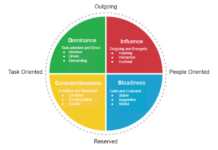
I was watching a sports newscast some time ago, and the commentators were talking about a situation with a first-year coach in the NFL. The coach had decided to bench the long-time quarterback in favor of a young athlete. This team was struggling, and for the most part, the panelists supported the coach’s decision. Analyst Herm Edward (former NFL player and head coach) made an observation that connected well with me.
Edwards said effective coaches “listen with their eyes.” He shared that the players in the locker room know who is putting in time and work–and who isn’t. If coaches do not closely observe every day and pay close attention, they may make bad decisions and even tolerate bad behavior.
However, if they “listen with their eyes” they SEE proof of how players are engaging with one another and who is contributing in a real way to the team.
It was the same with some of my best bosses. They would use a variety of approaches to stay in tune with what was “really” going on. They watched meetings. Observed how coworkers interacted. Kept an eye on how employees engaged with customers. They would hold informal, out-of-the-blue discussions in the hallway or out at the picnic table. Some would even work side-by-side with us to see what was working and what wasn’t.
They asked our opinion about improving customer service and workflow and wanted our ideas about how to work as a team. And most importantly, they LISTENED.
You will probably not be surprised to hear that most of their decisions ended up being good ones. That’s because they were based on real information and factual context because they were involved. They also earned the support of their team because we knew they were in the trenches with us and valued our opinion.
Pay attention to what you are paying attention to. While other’s opinions (often presented very confidently) can have merit, listen with YOUR eyes. Step away from the office or desk and get close to where the real work happens. Engage regularly with your team members in formal and informal ways.
Listening with your eyes will give you a more complete understanding of how things are truly going with your team. From there you can more easily refine systems, roles and train for skills that will help your team serve others more effectively. And you’ll all probably experience less frustration and stress (and who doesn’t want that?!)
For more encouragement about building a healthy culture, subscribe to my posts!
Photo © Korionov – Adobe Stock. All Rights Reserved





